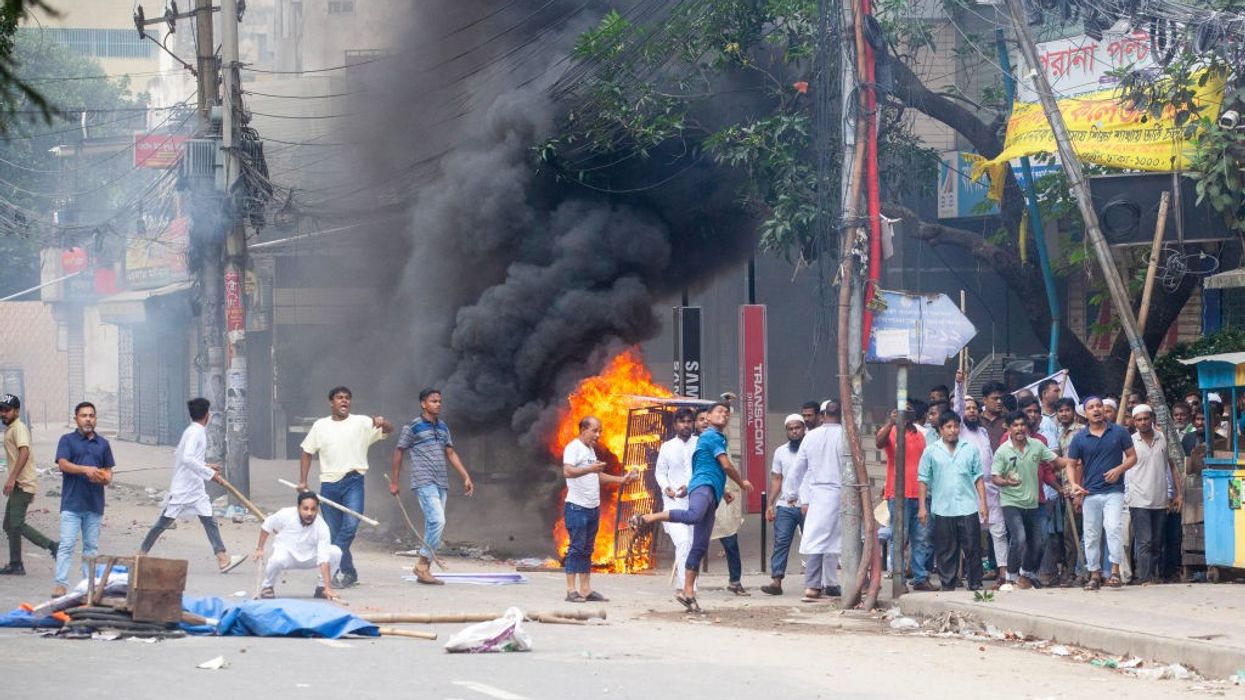THE UK has expressed deep concern over the recent violence in Bangladesh, which has resulted in hundreds of deaths and thousands of injuries.
In a statement, Catherine West, the parliamentary under-secretary of state at the Foreign, Commonwealth and Development Office (FCDO), condemned the unacceptable loss of life and emphasised the need to protect the rights of peaceful protesters.
"The UK is deeply concerned by the violence we have seen in Bangladesh in recent days," West said. "The loss of life is unacceptable. Peaceful protestors must not be subject to violence."
The number of arrests in days of violence in Bangladesh passed the 2,500 mark in an AFP tally on Tuesday (23), after protests over employment quotas sparked widespread unrest. At least 174 people have died, including several police officers, according to a separate count of victims reported by police and hospitals.
West underscored the importance of safeguarding fundamental rights, including the rights to protest, peacefully assemble, and express diverse political views. She also called for the swift restoration of internet and communication services to reconnect people in Bangladesh with their families and friends in the UK and worldwide.
"We urge an end to the violence and loss of life and call on all sides to find ways to restore calm across Bangladesh," West added. "This includes establishing a pathway for constructive political dialogue in the interests of the people of Bangladesh."
West expressed solidarity with those affected by the violence and highlighted the strong connections between the UK and Bangladesh, noting the significant contributions of the Bangladeshi community in the UK.
What began as demonstrations against politicised admission quotas for sought-after government jobs snowballed last week into some of the worst unrest of prime minister Sheikh Hasina's tenure.
A curfew was imposed and soldiers deployed across the country, and a nationwide internet blackout drastically restricted the flow of information, upending daily life for many.
On Sunday (21), the Supreme Court pared back the number of reserved jobs for specific groups, including the descendants of "freedom fighters" from Bangladesh's 1971 liberation war against Pakistan.
The student group leading the demonstrations suspended its protests Monday (22) for 48 hours, with its leader saying they had not wanted reform "at the expense of so much blood".
The restrictions remained in place Tuesday after the army chief said the situation had been brought "under control".
There was a heavy military presence in Dhaka, with bunkers set up at some intersections and key roads blocked with barbed wire.But more people were on the streets, as were hundreds of rickshaws.
The head of Students Against Discrimination, the main group organising the protests, said that he feared for his life after being abducted and beaten, and the group said Tuesday at least four of its leaders were missing, asking authorities to "return" them by the evening.
Late Monday, Hasina's spokesman said the prime minister had approved a government order putting the Supreme Court's judgement into effect.
Critics say the quota is used to stack public jobs with loyalists to Hasina's ruling Awami League.
Hasina, 76, has ruled the country since 2009 and won her fourth consecutive election in January after a vote without genuine opposition.
Her government is also accused by rights groups of misusing state institutions to entrench its hold on power and stamp out dissent, including by the extrajudicial killing of opposition activists.
(with inputs from AFP)





